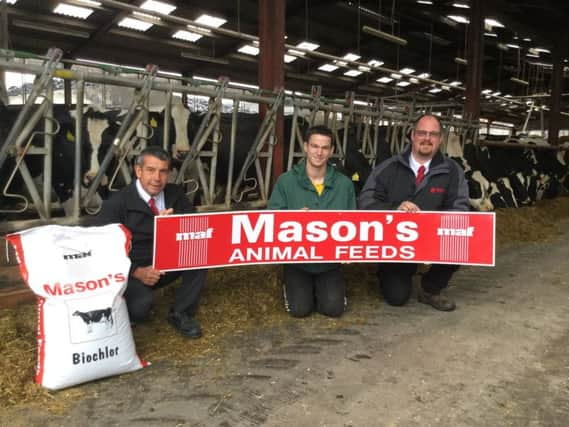Farm walk to provide insights into dry cow management


Stephen Haffey and Sons milk 330 cows, averaging 10,000l. This figure has increased over the past 12 months. The cows calving from August through to May.
“Neil’s attendance gives a truly international dimension to the open day,” confirmed Mason’s managing director Colin Purdy.
Advertisement
Hide AdAdvertisement
Hide Ad“A tremendous amount of research on dry cow management has been carried out in the United States over recent years. And it’s important that milk producers here in Northern Ireland learn form this work at first hand.
“Those attending the farm walk will have a unique opportunity of being able to do just that.”
Colin continued: “Managing the dry cow properly is, possibly, the most important challenge that faces dairy farmers around the world.
“Decisions made during this time will set the cow up properly for her next lactation. However, if the incorrect management decisions are taken in the run-up to calving, the end result will be the onset of numerous metabolic and production-related problems, which will impact on affected cows throughout their subsequent lactations.”
Advertisement
Hide AdAdvertisement
Hide AdCourtesy of the farm walk, the team at Mason’s will profile the benefit of feeding Bio-Chlor Down Calver Nuts. Manufactured by the company, they act to ensure that cows calve down without problems and are ready to produce milk in the most efficient and effective way possible.
The Haffey family has been feeding Bio-Chlor nuts to all their pre calvers for the past two years.
“The use of Bio-Chlor has significantly reduced transitional problems,” Stephen confirmed.
“Cows calve down with excellent appetites. They are just ready to perform and reach peak milk yield earlier. Metabolic problems, which can be a real problem directly after calving, have also been significantly reduced.”
So how does Bio-Chlor work?
Advertisement
Hide AdAdvertisement
Hide AdIn crude terms the dairy cow’s rumen is nothing more than a large fermentation vat containing billions of bacteria. It’s a very simple process: as bug numbers grow, the cow harvests those that are available to help meet her own nutritional needs.
But it’s only in recent times that research has focussed on identifying the conditions in the rumen that best suit microbial growth.
“The theory is very simple,” Colin Purdy explained.
“By identifying the factors limiting bacterial growth in the rumen, it is feasible to improve the efficiency of milk production and feed conversion: in other words more output per unit of feed.”